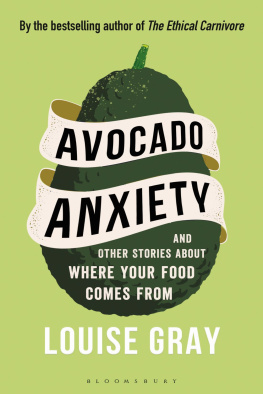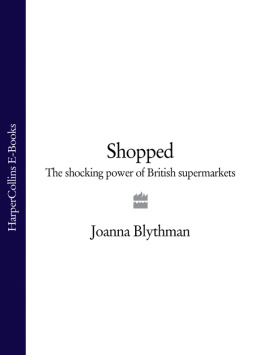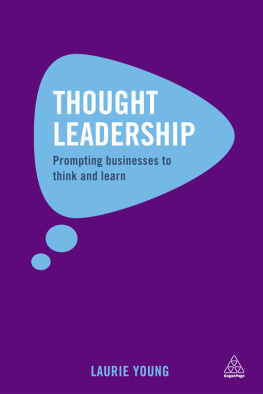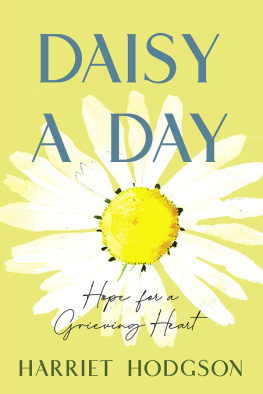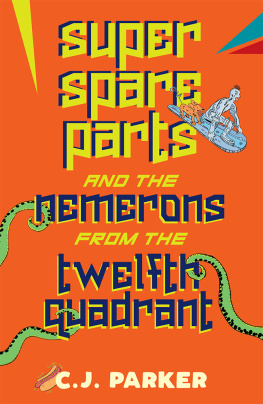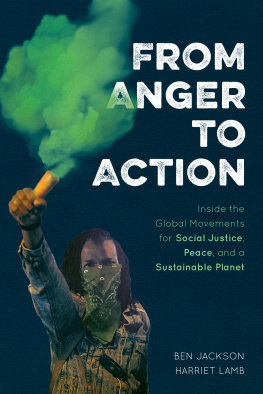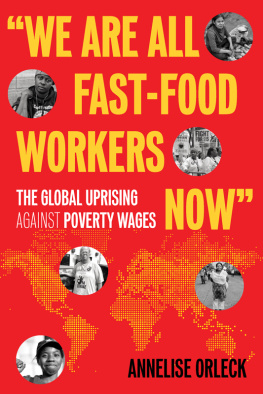Harriet Lamb has been Executive Director of the Fairtrade Foundation since 2001. Before this she worked at Fairtrade Labelling Organisations International (FLO) in Bonn the global umbrella body for Fairtrade. She led the campaigns of the World Development Movement and has held a range of other roles, including campaigning for a minimum wage in Britain while at the Low Pay Unit.
Harriet has lived and travelled widely in the developing world, including time in India working with farmers and landless labourer co-operatives, and she is a highly experienced public speaker and media spokesperson. She was awarded a CBE in the New Year's Honours List 2006 for her contribution to Fairtrade.
This eBook is copyright material and must not be copied, reproduced, transferred, distributed, leased, licensed or publicly performed or used in any way except as specifically permitted in writing by the publishers, as allowed under the terms and conditions under which it was purchased or as strictly permitted by applicable copyright law. Any unauthorised distribution or use of this text may be a direct infringement of the author's and publisher's rights and those responsible may be liable in law accordingly.
ISBN 9781407024332
Version 1.0
www.randomhouse.co.uk
13579 10 8642
Published in 2008 by Rider, an imprint of Ebury Publishing
A Random House Group Company
Copyright 2008 The Fairtrade Foundation
Harriet Lamb has asserted her right to be identified as the author of this Work in accordance with the Copyright, Designs and Patents Act 1988
Edited by Ben Jackson
This electronic book is sold subject to the condition that it shall not by way of trade or otherwise, be lent, resold, hired out, or otherwise circulated without the publisher's prior consent in any form other than that in which it is published and without a similar condition including this condition being imposed on the subsequent purchaser
ISBN: 9781407024332
Version 1.0
To buy books by your favourite authors and register for offers visit www.rbooks.co.uk
Royalties from the sale of this book will support the work of the
Fairtrade Foundation.
Acknowledgements
Firstly a huge heart-felt thank-you to Ben Jackson for editing this book, and to Simon Pare for additional research.
For their contributions I would like to thank Foundation staff and volunteers past and present, especially Barbara Crowther, Gemma Steptoe and Dave Goodyear, as well as Richard Anstead, Sara Barron, Ian Bretman, Bruce Crowther, Chris Davies, Frank Foo, Eileen Maybin, Nita Pillai, Julia Powell, Tamara Thomas, Mark Varney Eileen Veitch-Clark and Phil Wells.
I would also like to thank all those who have given their time and told me their stories, including: Barry Coates, Peter Gaynor, Mike Gidney, Katharine Hamnett, Brad Hill, Joe Human, John Kanjagaile, Silver Kasoro Atwoki, Raymond Kimaro, Justin King, Steve Knapp, Jeroen Kroezen, Comfort Kumeah, Tadesse Meskela, Robin Murray, Penny Newman, Matt North, Noel Oettle, Merling Preza Ramos, Renwick Rose, Alistair Smith, Tammy Stewart-Jones, Sophi Tranchell, and Greg Valerio.
I am greateful to WDM for opening up their banana archive and Bananalink for all their help.
Thanks also to Oxfam America (www.oxfamamerica.org) for the original idea upon which the diagram on page 235 is based.
Above all else, I would like to acknowledge those many, many people across the world who have played their part in putting Fairtrade on the map but whose stories could not all be included in this book.
Foreword
Every time a shopper picks a product with the FAIRTRADE Mark off a supermarket shelf that person is showing how profit and principle can go together. The story of Fairtrade is not about how we can buck the market but about how we can bend it, to serve the people who are at the bottom end of a supply chain that stretches from some of the poorest parts of the world to some of its richest regions.
As a foreign correspondent I crossed that great divide myself many times. I took pictures of the destitute and diffident, and beamed them into sitting rooms across Britain. The places changed but the core of what I did remained the same: I described the problem, but didn't stay on to help find a solution. How often I wished I could offer help, how often I wanted to rail against the injustice I saw around me. But as a reporter you move on; the phone rings and you are on another plane to yet another story.
The invitation to become Patron of the Fairtrade Foundation changed all that for me. Here was my chance to become a part of the solution. So many of the conflicts I had witnessed were rooted in poverty. It is when we have nothing in our back pockets that we are most tempted by the warlord who would place our children in harm's way or the politician who would persuade us that our situation is all about tribe or ethnicity. But when we know there is money to feed the family today and there is the promise of more to come to educate our children tomorrow we are muchless likely to listen to the hate-mongers. That is precisely what Fairtrade does. Its offer of a stable income is the best protection against violence and insecurity.
Today nearly half the households in Britain have bought a Fairtrade product in the last year. Every major supermarket and scores of independent shops in Britain are now playing their part in making sure their customers can choose Fairtrade. It is a remarkable achievement and all the more so given how competitive Britain's supermarkets are on both price and quality. It's not been easy. With honesty and insight, this book charts the journey of the Fairtrade movement, its high and lows, its successes and failures. It tells the story of Fairtrade from its hesitant but hopeful beginnings to what it is today a mainstream option for millions of shoppers, and therefore also for farmers and workers.
Fighting the Banana Wars and Other Fairtrade Battles offers a compelling eye-witness account from someone at the heart of the campaign to make us re-think the way we do our shopping. From her encounters with farmers desperate for change, with activists who want it all and more, to boardroom executives with their bottom-line scepticism, Harriet Lamb has managed to get behind the facts and figures of Fairtrade; in this book she has revealed its soul. 'Soul' what a word to use when all around you people are talking about markets and margins! What's 'soul' got to do with the business of buying and selling coffee, the world's second most traded commodity after oil? Who cares about 'soul' when share prices have to be kept buoyant and costs kept to a minimum? The Fairtrade movement that's who cares.
I remember attending a meeting in London that brought together all the varied, and sometimes competing, players in the Fairtrade movement. The supermarket staff with their PowerPoint pie charts were there. They sat next to church-hall supporters from rural towns in Britain. Mingling with them were farmers from far-flung countries, twitching at collars too tight on necks more accustomed to the heat of a tropical sun. One speaker was talking about how the FAIRTRADE Mark was taking on the status of a brand logo, its blue and green symbol instantly conveying its own message. I was chairing the meeting and saw a hand go up it was a farmer from South America. In halting English but in words I still remember, this man encapsulated the spirit of Fairtrade. 'I ask you, my friends, to remember one thing,' he said. 'Fairtrade is more than a brand, it is a people.'
Above all, Fighting the Banana Wars and Other Fairtrade Battles is about the farmers, workers and their families for whom Fairtrade has been a lifeline in a trading world that has yet to offer them the level playing field they have been promised for decades. This is the story of how they have helped create Fairtrade, with the support of shoppers overseas, and so brought tangible, measurable change to many people's lives change with dignity because this is about a fair exchange. When you meet the farmers, their pride shines through: pride in their perfectly kept account books and neat plots, pride in their new warehouse or school, pride that they are themselves selling quality products on world markets, but above all else pride in their ambitions and their bold dreams for the future.


